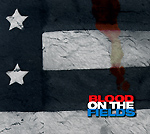
Marsalis assumes nation's artistic leadership
|
This review first appeared in the July 5, 1997 edition of the American Reporter.
Not every generation has one, nor every society: a laureate who defines and embodies and leads, who uses his own art to help shape the artistic conscience of his nation.
The United States hasn't had such a visionary personality in the arts since the heyday of Leonard Bernstein. It was Bernstein who set the agenda, who signaled the acceptance of rock and jazz, who symbolized America's growing sophistication in the arts. While there are many, many talented people working in all disciplines, no one has been able to replace Bernstein – until now. Wynton Marsalis, the 35-year-old jazz composer and trumpeter, has assumed that mantle of artistic leadership.
Marsalis first came to the fore as a precocious 20-year-old challenging Miles Davis both musically and philosophically. Marsalis was a fine player from the get-go, a trumpeter who could show both power and nuance – as well as cross over and play classical music with the very best.
But during the early part of his career, Marsalis concentrated on jazz's tradition, on preservation. He felt Miles was diluting jazz by mixing it with rock, with hip-hop, and ultimately with rap – and he publicly criticized Miles for so doing.
Thus, Marsalis never pushed the limits of the music himself, at least not until the past few years. In 1993, the release of "Citi Movement (Griot New York)" showed a new side to Marsalis, an ambitious composer of non-traditional jazz willing to put his ass on the line by trying something new. He continued that on "In This House, On This Morning" (1994), a work of sacred jazz.
With those two recordings, Marsalis was widely hailed as the new Ellington, referring to Duke's efforts in the 50s and 60s to meld jazz and classical into a new form.
While the comparisons to Ellington were meant to be flattering to Marsalis, they missed the point that Ellington's forte was the 4-minute song, that his efforts at larger works had largely fallen flat on both audiences and critics. Marsalis has long outpaced Ellington when it comes to creating what might be termed "high jazz."
That artistic growth of Marsalis' continues – no, takes a huge leap forward – with "Blood on the Fields," his new three-disc musical opus on slavery.
It is every bit as ambitious as anything Bernstein composed. It is a first for Marsalis in several ways, perhaps foremost the complexity of the scoring: "Blood" features both a big band and multiple vocalists. At almost 3 hours in length, Marsalis' epic is comparable to a symphony or an opera, albeit with a jazz approach.
"Blood on the Fields" is not perfect; there are moments in this lengthy production that drag, that are ponderous, that struggle to hold your attention. But as Albert Camus once wrote of James Joyce's "Ulysses" (of which much the same could be said), it's the effort that matters, not the final result. And what he meant, I think, is that Joyce chased after a larger than life artistic vision; in his case to capture in words every thought and feeling of a single man over the course of a single day.
In Marsalis' case, it's an effort to capture the complexities of slavery through jazz. No less a task than Joyce's, and no less impressive in its execution. For "Blood" explores much more than simply the rage and cruelty of slavery; Marsalis also brings out the way human beings in any situation (slavery included) find ways to create simple moments of joy, to create family and community. That love can't be extinguished, that the slaves were three-dimensional people with hopes and dreams just like the whites. No Aunt Jemima fakery here; it's just an honest and complex look at the human beings now branded by history with the one-word description of "slave," a label that strips them of context, of their own faults, of their very humanity.
Of course, the downside to having a talent like Marsalis on the scene is that the hack critics in New York quickly run out of superlatives when describing his work, and, with nothing else to fall back on, instead assault music fans with meaningless gibberish like describing a previous Marsalis outing as "fascinatingly textured" or "sly and exuberant." Both of which, of course, mean nothing, but they make the critics feel good because they sound as if they should mean something.
But the vacuous drivel of the artistically impaired is a small price to pay for having grand art being produced again.
